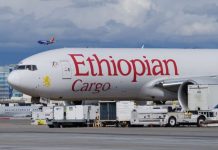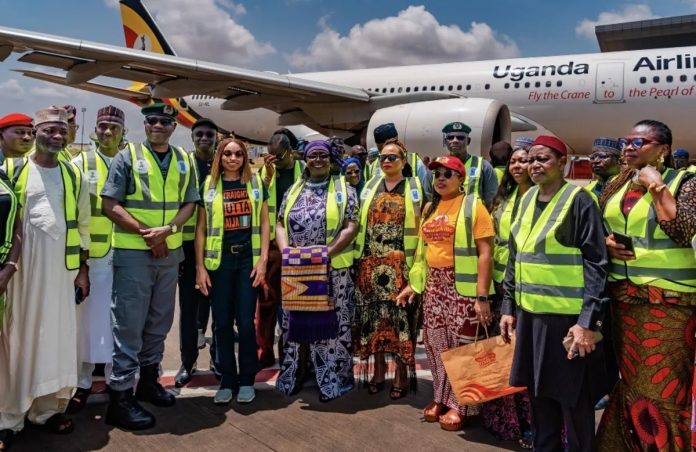The Federal Government has officially launched the Nigeria–East/Southern Africa Air Cargo Corridor, offering up to 50–75% discounts on freight costs to empower Nigerian exporters—especially micro, small, and medium-sized enterprises (MSMEs)—under the African Continental Free Trade Area (AfCFTA) framework.
Unveiled at the Nnamdi Azikiwe International Airport in Abuja during Africa Day celebrations, the transformative initiative was led by the Minister of Industry, Trade and Investment, Dr. Jumoke Oduwole, in partnership with Uganda Airlines and the United Nations Development Programme (UNDP).
Dr. Oduwole described the corridor as a strategic leap toward boosting intra-African trade and fulfilling President Bola Tinubu’s commitment to diversify Nigeria’s non-oil exports.
“This corridor is more than a logistics solution; it is a trade enabler built by Africans, for Africans. It empowers Nigerian MSMEs to reach regional markets faster, at lower cost, and with reduced risk,” she said.
The new route connects Nigeria directly with key trade hubs in Uganda, Kenya, and South Africa, dramatically shortening delivery times for time-sensitive goods such as textiles, cosmetics, leather products, and agro-processed foods—from weeks or months to mere days.
Cargo rates under this corridor are 50% lower than commercial rates and are exclusively accessible to exporters affiliated with recognized associations such as NACCIMA, NASME, NASSI, and WCCIMA. This ensures structured implementation and inclusiveness, while allowing the Ministry to monitor trade flows effectively.
Supported by the UNDP Regional Bureau for Africa, the project is backed by strong inter-agency collaboration involving the Federal Ministry of Aviation, Nigeria Customs Service, and the Federal Airports Authority of Nigeria (FAAN).
Dr. Oduwole also announced the upcoming launch of an AfCFTA Market Intelligence Tool to help Nigerian exporters navigate regulatory landscapes and identify market opportunities in East and Southern Africa.
The inaugural cargo flight featured a diverse array of Made-in-Nigeria goods—including textiles, beauty products, and processed foods—all from women-owned businesses. The Minister praised these entrepreneurs as pioneers driving Nigeria’s export ambitions forward.
“With our tariff concessions now gazetted, Nigerian products can enjoy reduced tariffs across the continent. The time for preparation is over—the time for action is now,” she declared.
Experts say this initiative positions Nigeria as a continental leader in AfCFTA implementation and will help dismantle long-standing logistics barriers that have hindered intra-African trade, which currently accounts for less than 15% of Africa’s total trade.
By facilitating seamless access to regional markets and supporting value-added exports, the corridor is expected to significantly boost Nigeria’s share of African trade and solidify its leadership in driving continental economic integration.













